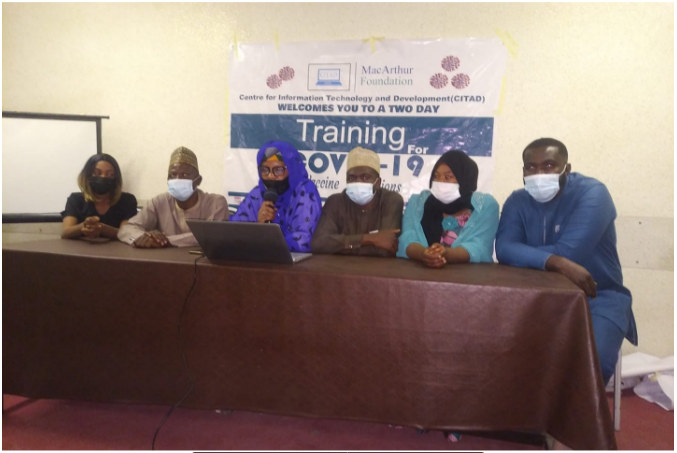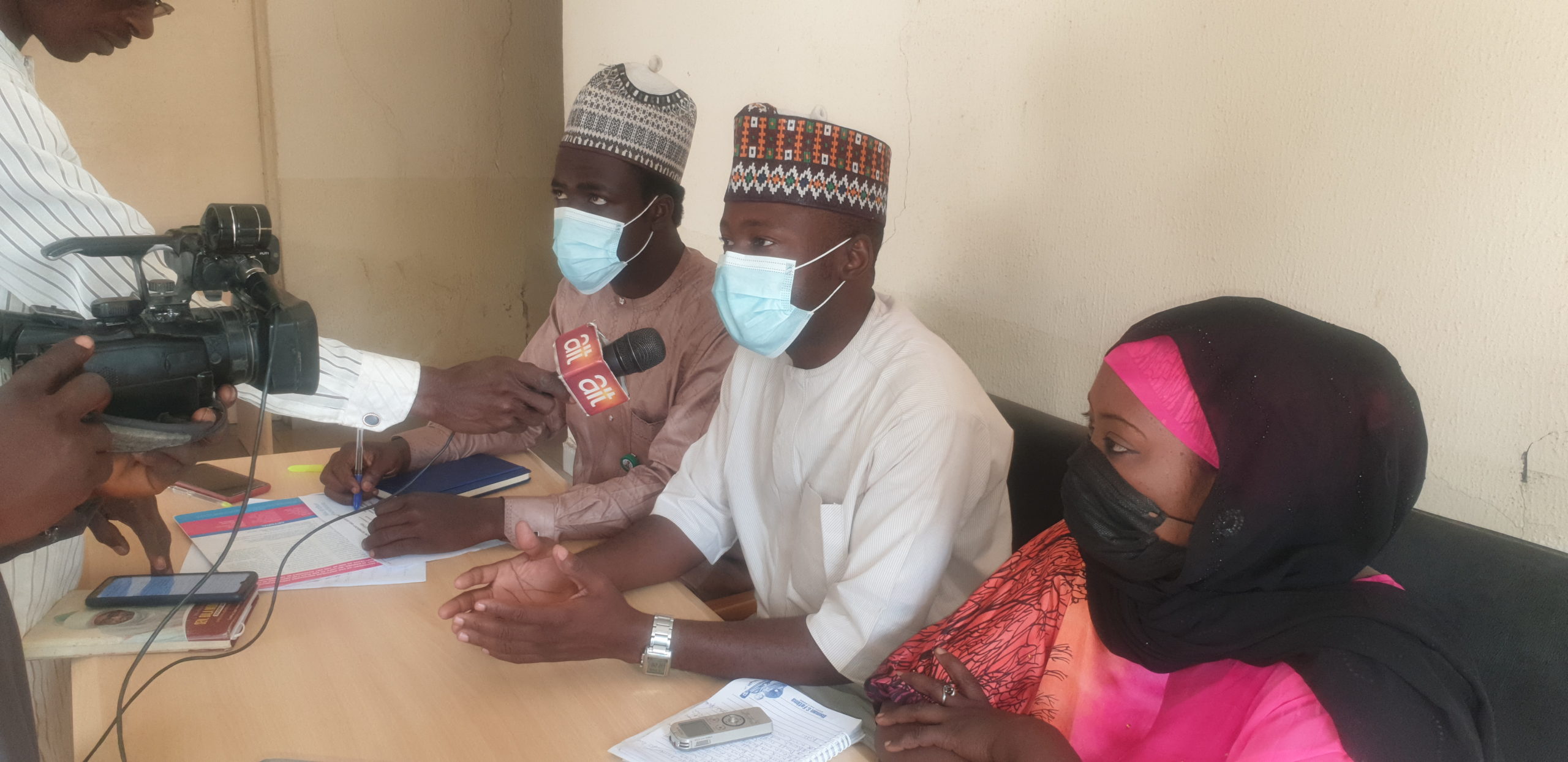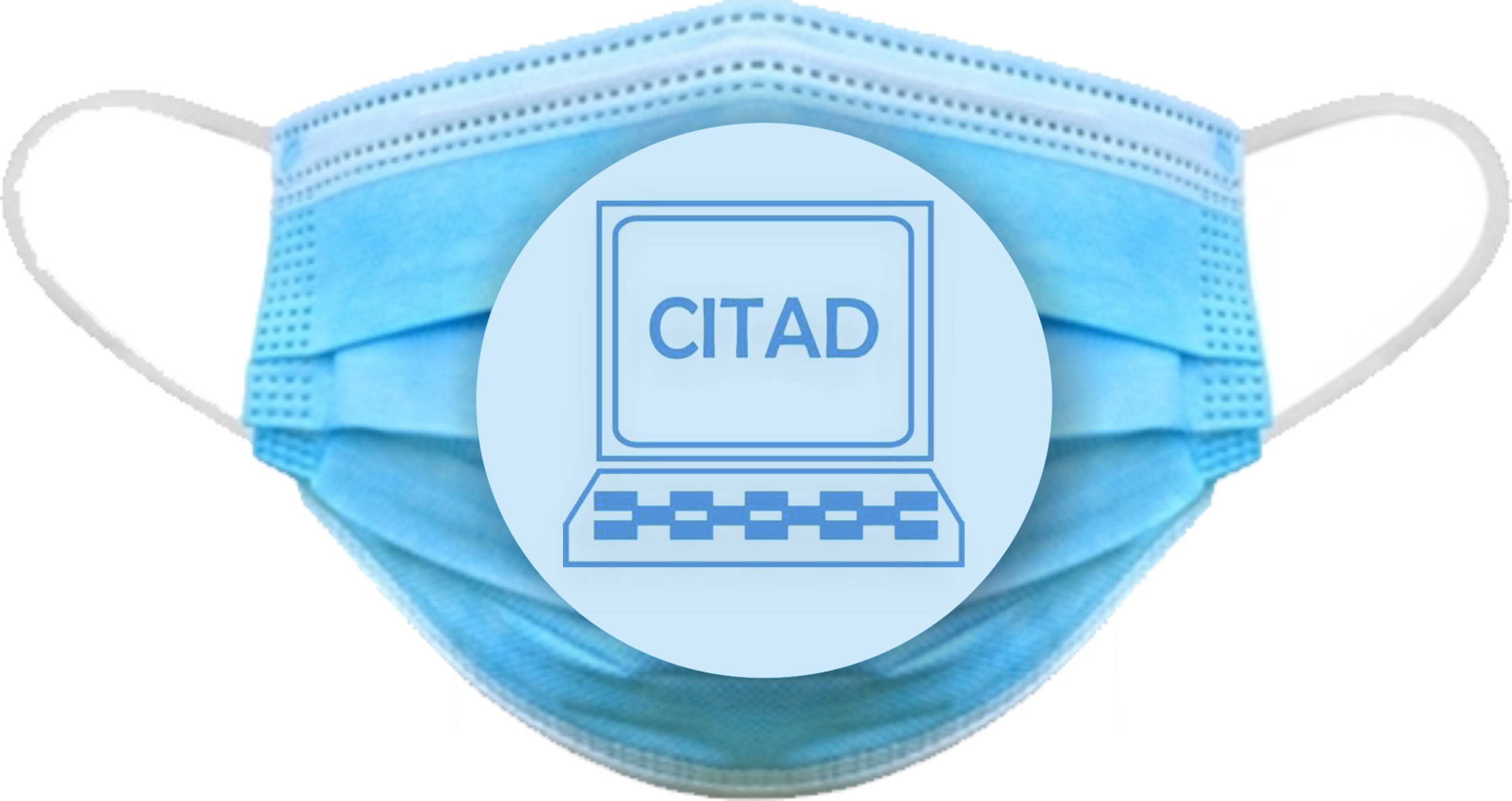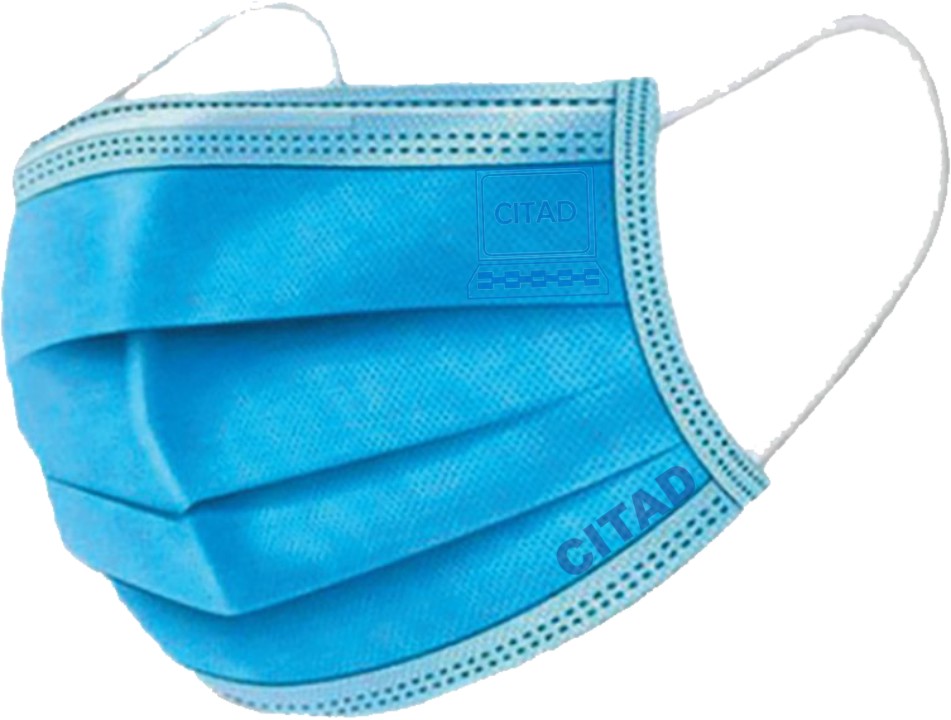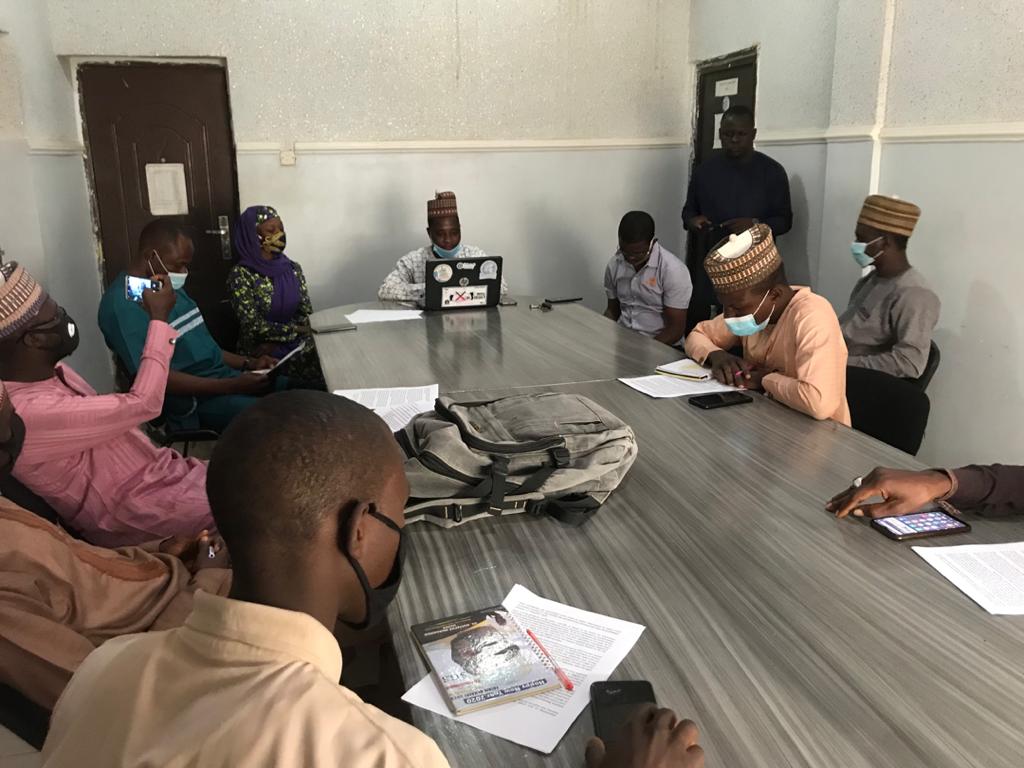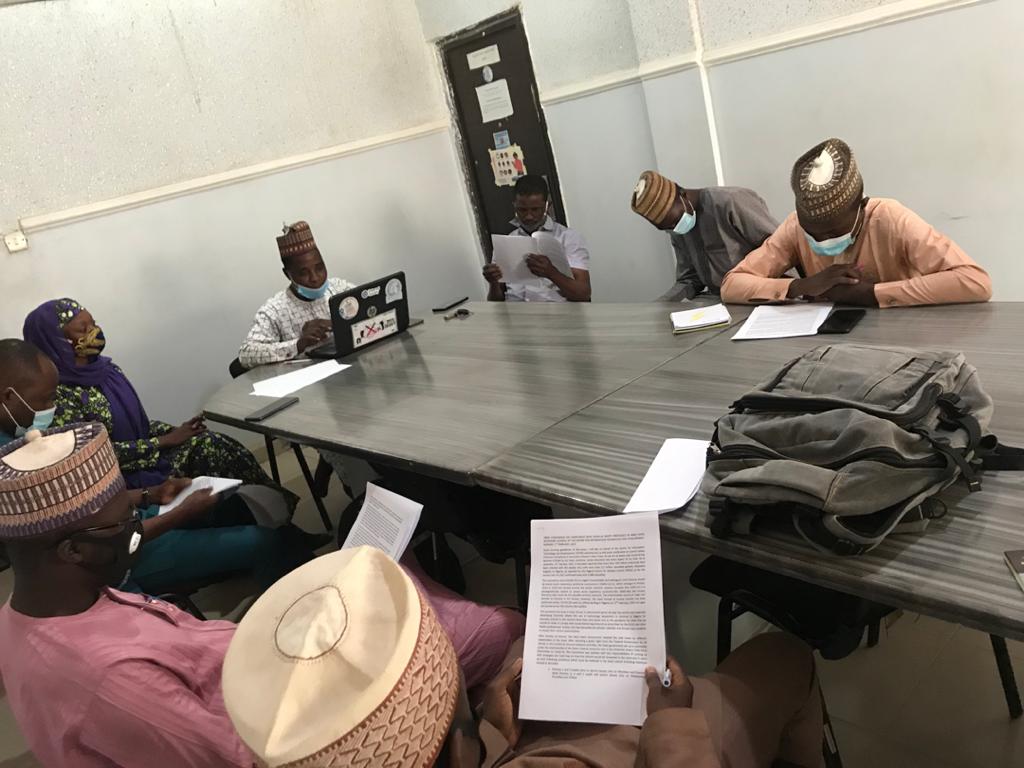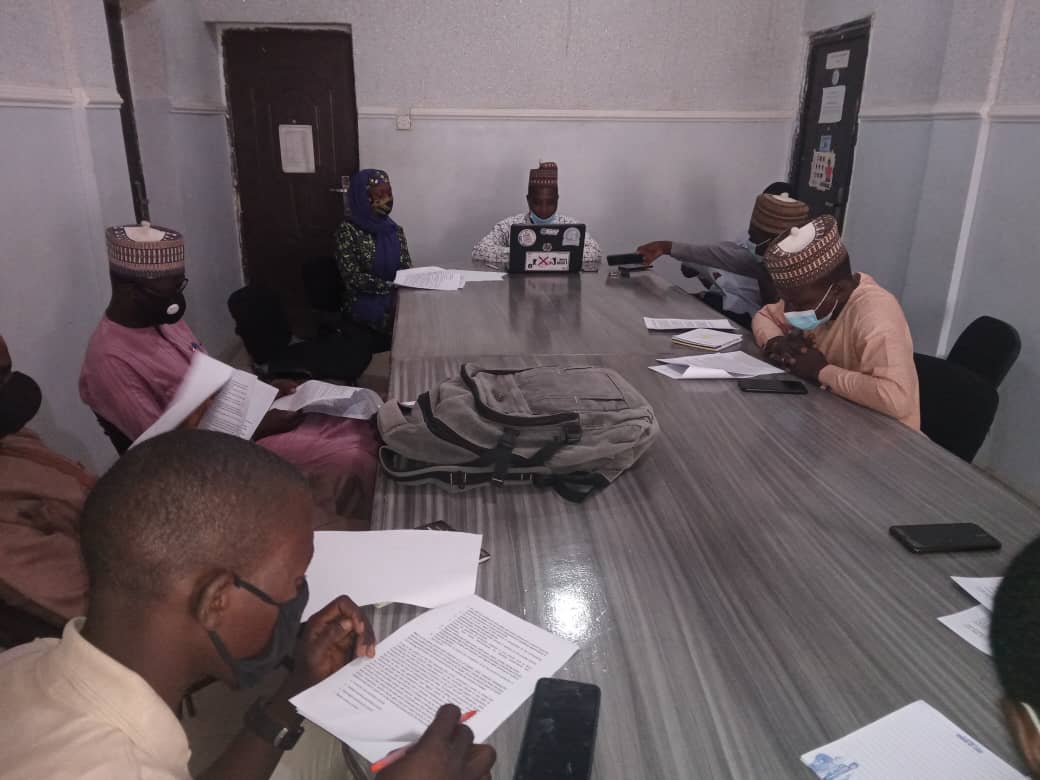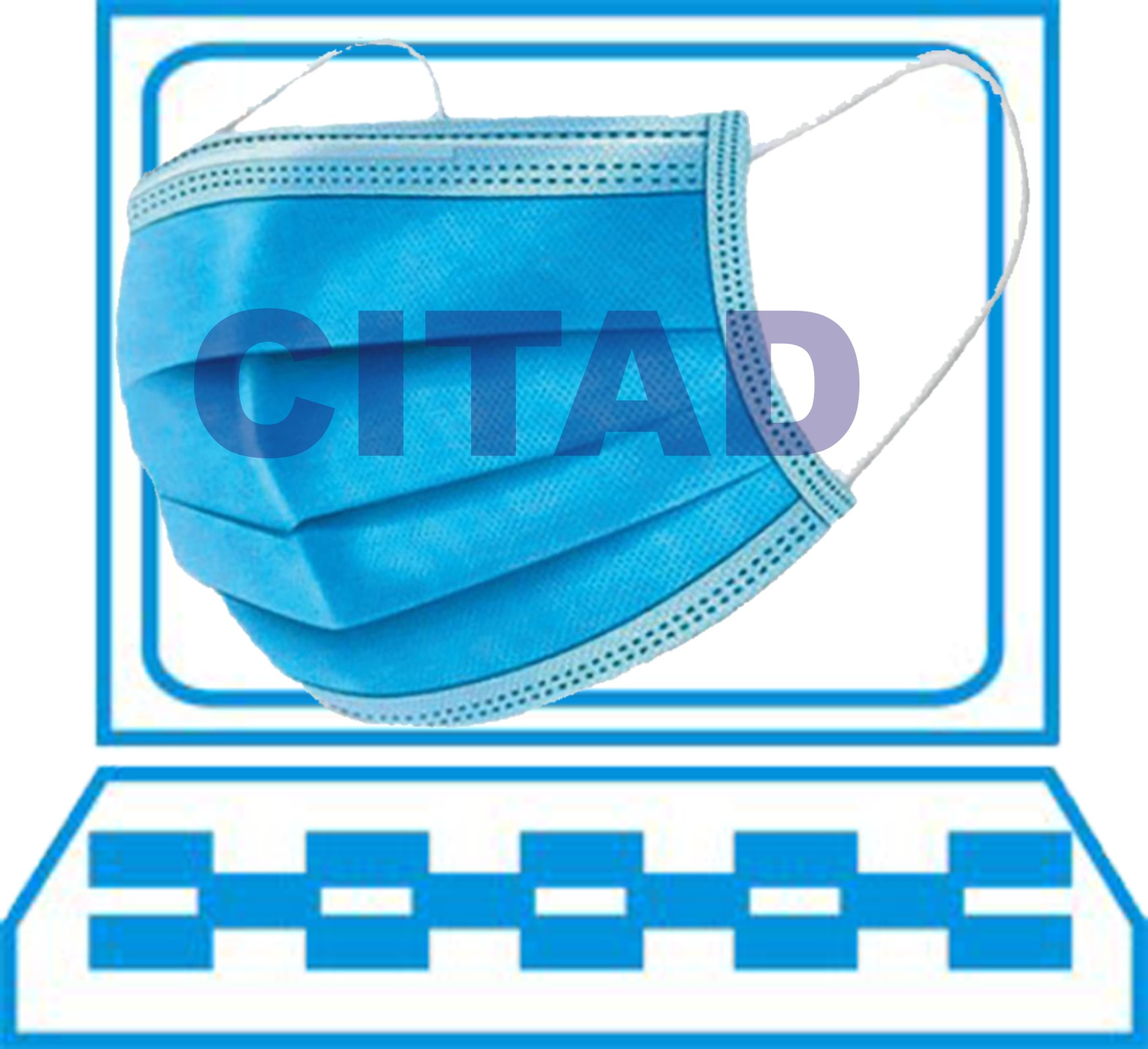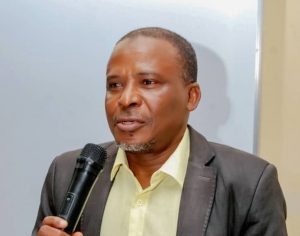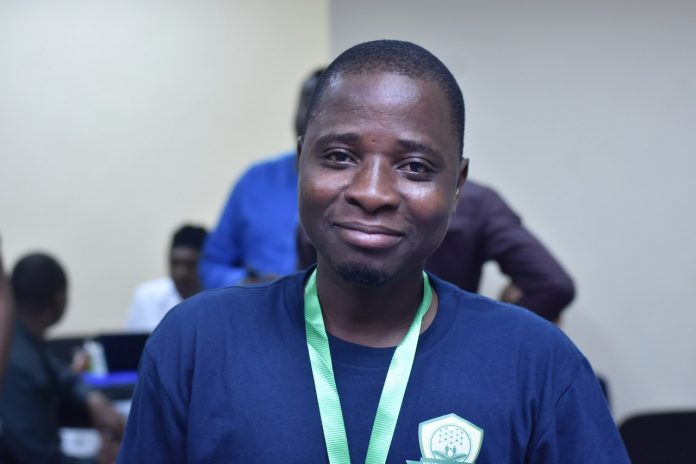Report of Two-Day Conference on COVID19 Vaccination Interventions at State Levels
The Centre for Information Technology and Development (CITAD) with support from MacArthur Foundation organized a two-day conference on 16th and 17th February in Abuja. The conference which took place at K-Class Hotel Abuja was attended by Commissioners of Health from Sokoto, Taraba, Bauchi, Adamawa and Katsina states, Executive Secretaries of Primary Health Care Development Agencies of 19 northern states, representative of Minister of Health and project partners from the six focal states.
The Executive Director (ED) CITAD, Dr. YZ Ya’u began his opening remarks by welcoming the participants to conference and expressed gratitude for honoring our invitation to be at the conference to share their ideas and experience in the field as critical stakeholders in the field in addressing the COVID 19 challenge.
Dr. YZ Ya’u noted that the project started a year ago and the main objective then was to work with different stakeholders and partners to support effort to get more people or everybody to be vaccinated and to sensitize people about the importance of the vaccinations, to dispel rumors and misinformation about the vaccine itself and ensure citizens that the vaccine is safe, efficacious and can be used by all.
Over the year, this project has been implemented, and of course the COVID 19 is over and a lot of people have done some work, hence it is important to seat down and reflect on what has been done. So in essence according to Dr. YZ the workshop was primarily aimed at understanding the lessons that all of us particularly those of us at the frontline had gathered, what lessons have you learnt or are you learning in terms of addressing the public challenge that can be used in the future to address other challenges in the health sector that may come and what lessons we learnt that we can carry forward in terms of transforming the health sector in general. What can we do collectively, discuss and find solution to them.
It is hoped that the conference will harvest lessons, ideas and progress that have been made and specific subventions that can be reflected and apply in other similar situation in the health sector. These ideas and experiences will later be distill and possibly produce a policy brief document out of them and shared with stakeholders in the sector. In the last few months we have had some cases of emergencies and outbreaks. So learning from the way we have confronted COVID 19 how are we prepared to deal with those emergencies that may be found in the future. He further noted that we know you have done quite a lot work; you have also experienced a lot of challenges, you have developed innovative ideas. It is our hope that you will share with us those ideas, lessons and innovations that you have implemented in your respective states and in doing so you will be benefited from each other. However, documenting these experiences and ideas will help in transmitting the experiences for posterity.
He concluded his opening remarks by appreciating the participants for honoring CITAD’s invitation, for good work that participants have done and of course for agreeing to share their ideas and experiences on the COVID 19 vaccine intervention as critical stakeholders. He wished the participants very productive and engaging workshop that will be useful to all.
Goodwill Messages from Commissioners of Health of Sokoto, Bauchi, Taraba, Adamawa, Katsina
Sokoto State Commissioner of Health
In his goodwill message the Sokoto State Commissioner of Health Alhaji Lema Abubakar thanked CITAD for organizing the conference. According him COVID 19 was a pandemic that shocked the whole world for this it is important to reflect on its history. At beginning of the COVID 19 pandemic there was as fear that everybody is going to die this was based on the historical experiences that humanity had of notorious pandemic that in some cases decimate some societies in the past. For this reasons this conference to share our experiences on how COVID 19 was overcome and nipped in the bud within a very short period of time with the help of technology so that posterity will have their resilience to face this type calamities that periodically replete the world. He finally commended the organizers of the conference and wished the participants a successful deliberation.
Commissioner of Taraba State Ministry of Health
The commissioner was represented by Dr. Abey Agbu appreciated CITAD for organizing the conference. He observed that initially when people heard about the pandemic everybody was shivering and thinking that it was the end for Africa and Nigeria and that was informed by the way people see how devastating the pandemic was even on developed countries. But for the interventions by Federal Ministry of Health and other partners like CITAD we are able to defeat COVID. He observed that it will be good indeed to be here to discuss our efforts at various corners that culminated to our victory against COVID 19. He further noted that other virus such as monkey fox had been discovered in our neighboring countries so we need to know what we have done very well so that we will be able to face what comes away in the future. For all these reasons conference was important, he challenged participants to put their best to make we understand each other and take all positive that will help us protect ourselves and our country against any disease that will be coming. He concluded his remarks by appreciating both the participants and the organizers of the conference as an opportunity to share knowledge.
Commissioner of Adamawa State Ministry of Health
The commissioner was ably represented by Dr. Bulus K.Z. Dr. Bulus thanked the organizers of the conference saying that it is timely though that was his first time of attending any of the CITAD’s engagement in this project. He noted that the conference would a learning avenue for participants will hear from the work experiences of each other from the field.
Commissioner of Katsina State Ministry of Health
The commissioner of Health Katsina State was represented by Dr. Mu’awiya Aliyu, the Director of Public Health at the ministry. In his remarks, Dr. Mu’awiya started by drawing the attention of the participants to the fact that it is all about the COVID 19 is over, but to the fact that there a large number people that are unvaccinated and this population really draw us back. According to him, this attitude by people who refused to take the vaccines was probably informed by the rumors and misinformation that went viral during the initial outbreak of the virus. He observed that this conference will give opportunity to participants to share their experiences especially the states that were able to vaccinate their targeted population. Katsina has been quite unfortunate in meeting its target in this for the state target was 3 million people out which they were able to vaccinate 2.3 million with first dose, but they could not get such number to take the second dose and eventually take booster dose, he related. This conference will give opportunity for participants to know how those states that were able to reached their target populations vaccinated. On finally note he thanked CITAD for organizing the conference and wished the participants fruitful deliberations.
Commissioner of Bauchi State Ministry of Health
The commissioner of Health Bauchi State was represented by the Executive Chairman of Bauchi State PHDA Dr. Rilwanu Muhammed who started by noting the fact that when COVID 19 came the first known victim of the virus was in the country was Bauchi state governor, then his chief of staff. Other victims were the deputy governor, secretary to the state government and the chief of judge of Bauchi state. He related how rumor about the vaccine was trending that when you take the vaccine you are going to die in the next few years. Of course there are some concern about the vaccine in some countries, but in Nigeria there is no evidence that shows a single case of a person fully vaccinated and get infected of the virus, he declared. He further noted that Bauchi state was able to only achieved 40% coverage of the target. So for this a lot has to be done, more effort has to be put in place and a lot of stakeholders such as the traditional rulers have to be contacted. He concluded by commending CITAD on what it is doing in this regards.
COVID19 Vaccination Intervention: The Experience of Borno State by Dr. Mala Abdulhamid, DD PHC, PM SERICC/SEMCHIC, BOSPHCDA
Dr. Mala’s presentation began by highlighting that Borno state has 27 LGAs some are accessible and some not accessible a situation conditioned by the state peculiarities in terms of geography and of course the security situation. According to Dr. Mala Primary Health Care (PHC) is one of the indicators of SDGs that aims to achieve the Universal Health Coverage (UHC), it is the entry point and the lowest level of health care service delivery. In Borno state, the service delivery is implemented across 3 categories of settlements on the basis of accessibility; the fully accessible, the partially accessible and inaccessible settlements. Accessible settlements are those that can be reached without any security support. These settlements can be utilized as fixed sessions or outreach sessions depending on the distance from the health facility. For the accessible settlements the following approaches were used by Borno PHCDA during the interventions; mobile sessions comprising teams going to hard-to-reach areas deliver immunizations, integrated PHC service delivery, integrated campaigns and RI intensification activities.
On the partially accessible settlements Dr. Mala noted that these places are reached with least of CJTF and little military support. Two approaches were used in this regards; mobile RI/Hit and run strategy and integrated fixed post strategy. In case of inaccessible settlements such places are reached with full security personnel and in some case military personnel were trained on how to administer vaccines and conduct basic AFP surveillance activities in inaccessible settlements. However, generally various lessons were learnt during vaccine administration strategies; high cost of implementing RIC/RES strategy, knowledge gap for data and services rendered during RIC implementation, duplication of services for RI intensification and PHC outreaches and lack of direct oversight on the RIC implementation activities due to inaccessibility for civilians due to the security compromised setting.
The following challenges that hindered vaccines uptake in Borno state thus; limited financial resources, dynamic security situation within the region, lack of human resource for health, inadequate infrastructure, for services non-compliance and difficulties in vaccine and cold chain management. On the final note, the paper recommended that to achieve more success in vaccines general and in COVID 19 particularly there is a need for increased political will on PHC services support across all levels, intensify demand generation activities, addressing human perennial human gaps across all levels. In addition to the above mentioned recommendations regular capacity building of managerial and services providers and intensification supportive and mentoring supervisions are very critical.
COVID19 Vaccination Interventions: The Experience of Yobe State by Dr. Babagana Kundi Machina, FWACP
The presentation began by highlighting how critical traditional and religious leaders’ engagements were for the Yobe State PHCDA (YOPHCDA) through the instrumentality of the Yobe Emirate Councils Committee on Health (YECCOH) in helping the agency in overcoming hesitancy especially in the case of COVID 19 across the 14 emirates in the 17 LGAs. Other market unions, Keke operators and NURTW etc were engaged. Below table shows the trend of COVID 19 vaccine in Yobe State from January to July, 2022. It shows a level of increase in the number of vaccinated people in the state.
One critical approach employed by the state which recorded quite a huge success was the integration COVID 19 vaccine with other primary health care services. Other critical issues were engagement of additional COVID 19 vaccination teams and of course intensification of the state team members. The presentation also highlights on some best practices that probably informed the little success made in the state. Dr. Machina noted that bi-weekly review meetings, these meetings provided avenue for close monitoring, feedback and recommendation. During such meetings action points are generated and tracked. However, the agency employed a live radio call-in programmes, performance-based incentives in which scorecard was developed and LGAs and wards were ranked. All this was in addition to the active mobilization by the relevant stakeholders among the religious and traditional leaders as noted earlier. In terms of accessibility all the LGAs of Yobe state are accessible only 17 communities in 8 wards that are partially inaccessible. It is also noteworthy that as at December, 2022 there was not single IDP camp in the state. In dealing with the case of mobile population such as the nomadic Fulani who are always on move their movement was strategically tied down to vaccine certificate presentation to officials and that helped a lot improving coverage.
The paper concludes by making the following recommendation that there is need ensure timely payment of vaccination team members and of course proper coordination of all COVID-19 vaccination activities of all organizations to improve efficiency, reduce duplications or wastages, and ensure equity.
COVID19 Vaccination Interventions: The Experience of Plateau State by Dr. Miakwap Livinus, Executive Secretary, Plateau State Primary Health Care Development Agency
In his presentation Dr. Livinus noted that at the beginning Plateau state recorded a very low performance. By March 2022 only 13,380 people were vaccinated through the state-wide Covid 19 mass vaccination campaign. However, following the scale 2.0 national strategy the number of the vaccinated people in the state reached 44,283 as at April, 2022. In fact up to this time there was not quite much success that has been recorded and that might have been due to some challenges among other; 90 % of COVID 19 personnel in the state are ad-hoc staff, payment of personnel only for work done on weekends, most health facility selected as vaccination site are far for clients, nonpayment of transport logistics to teams to cover settlement not close to the HF, suboptimal supervision by supervisors, poor social mobilization activities and some team members not been paid due to account number issue.
To ameliorate the above problems, the state and UNICEF teams came up with the new strategy of intensification of vaccination in 3 LGAs with highest number of unvaccinated clients. Teams were pay regularly and on daily basis throughout the 10 days of the intensification exercise. During this exercise National Orientation Agency (NOA) and interfaith groups were actively engaged and they helped in no small measure in social mobilization. This initiative produced some impressive results of 50,806 (1st,2nd and booster) people who were vaccinated by the teams. As a results of this success the strategy was employed too in other 8 LGAs that further jacked up the number of the vaccinated people to 108,158. However following this success, other partners key in to this strategy and the overall impact was the movement of the state Plateau state from 25th Position at 11th May, 2022 before the intensification to 8th position at 18thAugust, 2022 after intensification in the selected LGAs.
COVID19 Vaccination Interventions: The Experience of Katsina State by Dr. Muhammed Kaiya Ibrahim
In his presentation Dr. Muhammed highlighted that one important strategy adopted in the state was order given that each civil servant should be given and accept COVID 19 vaccine. These according to him help improving the number of the vaccinated people in the state. Other issues worthy of note was the level of political commitment on the part of the critical stakeholders; emirs and government. Also other government workers such as the DSS and Custom officers were vaccinated during the mass vaccination exercise.
In Katsina the agency also employed a sustained media engagement via call-in live radio program. At the beginning of the vaccination exercise there was a growing concern among the young traders who are operating in the southern part of the country that their movement to the southern part of Nigeria might be tie down to the presentation of vaccine certificates, hence acceptance of the COVID 19 by many young traders.
Hesitancy among the even the health workers was one of the clog that slowed down the success of the COVID 19 vaccine exercise in the state. This is in addition to many other challenges such as; rumor and misinformation peddling on the social media, cases of assault and harassment on vaccine teams, difficulty in payment of vaccinators and of course a problem of vaccine card racketeering.
To handle cases of place with problem of insecurity, the agency identified individuals among health workers that are accepted by the bandits. These individuals were used to deliver the vaccines to these bandits infested areas.
General Discussion and Blueprint Development by Prof. Nusirat Elelu, Executive Secretary, Kwara State Primary Health Care Development Agency
This session was anchored by Prof. Nusirat who led the discussion. It has been observed that generally the experiences of individual states cut across majority of the state this is especially in the area of challenges of insecurity. In course of the discussions, several issues were highlighted with the hope that such will serve as a guide for the stakeholders in dealing with similar challenges as the ones posed by COVID 19 thus;
- There is a need to come up with a general strategy for serving the inaccessible areas, this should be accompanied by action plan which can be short or long term
- Funding problem seems to be a general issue across states which must be addressed if future intervention programs must be successful
- Stakeholder engagement on how to mobilize funds is very critical for present and future endeavors
- There should be commissioned researchers that will make an in-depth research into the insecurity challenge and COVID 19 intervention to understand the nature and extent of the impact of the problems and other possible future intervention
- There should be commissioned researchers that will make an in-depth research into the health workers attitude towards COVID 19 vaccines and why some behave the way they did
- That COVID 19 helped in improving other vaccination programs through integration
- Generally, at both national and subnational levels COVID 19 led to increase in budgetary allocation. For example, 2020 budget was superb and unprecedentedly high than years before it, but unfortunately that did not continue
- COVID 19 experience brought about intensive use of technology in an exclusively analogue system. The introduction of EMID was particularly spectacular in this regards
- Virtual meetings or the so-called “zoom revolution” was utilized by practitioners in the fields and was used extensively for tracking and reporting
- Political will is very critical, stakeholders engagement is key this may include engagement with philanthropists such as BUA Foundation, Dangote Foundation, TY Danjuma Foundation etc
- Partnership is very important and still there is a need to help those state with low coverage to reach the desirable 70% to have a safer national clime
- The issue of hesitancy among health workers has been underestimated, thus there is a need further engagement of health workers on this. Health workers too need education and training
- COVID 19 not only exposed the weakness in our health system but rather it made it visible hence easy to be addressed
- COVID 19 experience exposed the fact that there is discrepancies in what our political do and say
- That achieving 70% coverage is a responsibility for all of us
Observations:
- Despite the availability of COVID 19 vaccines there are large number of unvaccinated population in many states
- Rumors, misinformation and fake news about COVID 19 are still thriving and determine the attitude of many people towards COVID 19 vaccine acceptance
- There is a single known case of a person who infected with COVID 19 after fully vaccinated
- PHC is an indicator of SDGs that aims to achieve Universal Health Coverage (UHC)
- Using health workers that are resident very close to the communities with security challenges has been helping and rewarding in improving penetration
- Vaccine card racketeering posed very serious challenge to achieving target of reaching out to the unvaccinated population
- The delay payment of vaccine teams had negatively affected the COVID 19 intervention in many states
- Rumors on social media platform were more damaging than those on other platforms
- Engaging students unions in the campaign via the Campus Ambassadors was very effective in some states
- States that tied down nomadic movement to COVID 19 vaccine certificate were able to track nomadic movement and get many of them vaccinated
- There have been cases of hesitancy among health workers in many states. In some states such as Bauchi threat of stopping salaries and stagnation of promotion of some health workers who refused to be vaccinated had proved effective in getting many vaccinated
- Giving inceptives helped a lot in achieving some level of progress in many states
Recommendations:
- A lot of enlightenment and awareness creation should be done to get those large number of unvaccinated persons vaccinated
- That training the military to administer vaccines is a very serious issue that may cause some problems, that the best way to engage military is the infiltration of the military by the health workers
- Social media influencers’ engagement to dispel rumor and misinformation on COVID 19 shoud be intensified
- There is a need to conduct survey/research on behavior or attitude of some health workers rejecting COVID 19 vaccines
- There should be a sustained advocacy to critical stakeholders (e.g. religious and traditional leaders) to challenge and counter the rumor/misinformation being peddled about the vaccine
- For the sake of safety of lives of health workers it is not good and indeed unprofessional to continue using the so-called accepted health workers by the bandits in order to reach out to the communities infested by such elements

